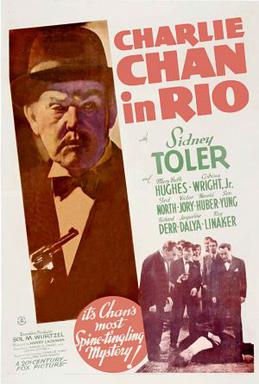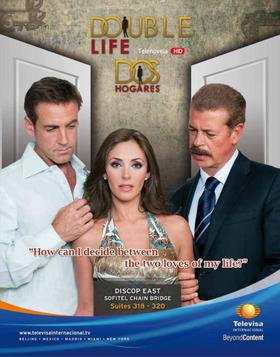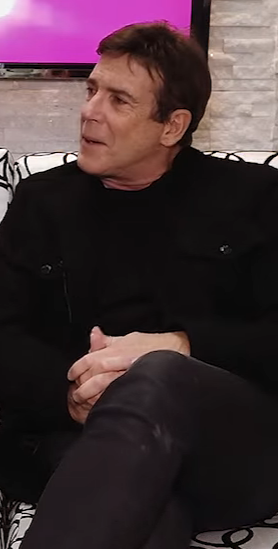
The following is an alphabetical list of topics related to the Argentina.

María Lucila Beltrán Ruiz, known professionally as Lola Beltrán, was a Mexican actress and singer.

Daniel Tinayre was a French-born Argentine film director, screenwriter and film producer.

María Aurelia Bisutti was an Argentine film and TV actress, with over 50 Argentine cinema and television credits between 1948 and 1993, as well as numerous roles in the theatre.

Luis Prendes Estrada was a Spanish actor. He was considered one of the country's most famous movie star during the 1940s and 1950s. He was also an important figure in the country's theatre.

La Pícara Soñadora is a Mexican telenovela produced by Valentín Pimstein for Televisa in 1991. Based on a La Pícara soñadora, a 1956 Argentine film of the same name, directed by Ernesto Arancibia. It starred by Mariana Levy, Eduardo Palomo, Rafael Inclán, Irán Eory, Gabriela Goldsmith and Laura Flores.

María Dolores Velázquez Rivas, better known as "Lola" Cueto was a Mexican painter, printmaker, puppet designer and puppeteer. She is best known for her work in children’s theater, creating sets, puppets and theatre companies performing pieces for educational purposes. Cueto took her last name from husband Germán Cueto, which whom she had two daughters, one of whom is noted playwright and puppeteer Mireya Cueto. Most of Cueto’s artistic interest was related to Mexican handcrafts and folk art, either creating paintings about it or creating traditional works such as tapestries, papel picado and traditional Mexican toys.

Charlie Chan in Rio is a 1941 film featuring the Asian detective Charlie Chan. It was the tenth film to feature Sidney Toler as the title character, who is called upon to investigate the death of a suspected murderer in Rio de Janeiro, Brazil.

Dos hogares is a Spanish-language Mexican drama thriller telenovela produced by Emilio Larrosa for Televisa in 2011.
Simplemente María is a Peruvian telenovela. It ran from 1969 to 1971. It starred Saby Kamalich playing a woman who goes from a struggling single mother trying to improve herself to being a married fashion designer. The show is cited as increasing interest in sewing and adult literacy. Saby Kamalich would be presented a gold sewing machine by the Singer Corporation as the show increased their sales in Peru.
The Campeonato Argentino de Rugby 1983 was an Argentine rugby competition in which Buenos Aires defeated Unión de Rugby de Cuyo for the championship.
The Kidnapping of Lola is a 1986 Mexican action film directed by Raúl Fernández and starring Rosa Gloria Chagoyán, Rolando Fernández and Frank Moro. It is a sequel to the 1983 hit Lola the Truck Driver, and is sometimes known as Lola the Truck Driver 2. Another sequel Lola the Truck Driver 3 followed in 1991.

The Autonomines is a 1984 Spanish comedy film directed by Rafael Gil and starring Alfredo Landa, María Casanova, and Manolo Codeso. The film parodies the Autonomous communities of Spain which had been created by the 1978 Constitution.

Carlos Enrique Mata Iturrzia, better known as Carlos Mata, is a Venezuelan television actor and singer. Born in Caracas, Venezuela on August 28, 1952, he is best known for his great career in Venezuelan telenovelas for the companies Venezolana de Televisión, Radio Caracas Televisión and, Venevisión. Mata was the protagonist in 9 telenovelas, among them the most recognized are La dama de rosa (1986), Señora (1988), Las dos Dianas (1992), Déjate querer (1993) and Enamorada (1999), among others. His album "Que por que te quiero" remained for four months on the Billboard charts in 1985, where he shared the stage with artists such as: Miami Sound Machine, Lola Flores, Celia Cruz, Joaquin Sabina, Julio Iglesias, Brigitte Nielsen, Miguel Bosé, among many others.

Éramos Seis is a Brazilian telenovela produced and broadcast by Rede Globo. It premiered on 30 September 2019, replacing Órfãos da Terra, and ended on 27 March 2020. It is based on the book of the same name written by Maria José Dupré. The series is adapted by Ângela Chaves, with the collaboration of Bernardo Guilherme, Daisy Chaves and Juliana Peres.
The following squads were named for the 1953 South American Championship that took place in Peru.
This page is based on this
Wikipedia article Text is available under the
CC BY-SA 4.0 license; additional terms may apply.
Images, videos and audio are available under their respective licenses.











